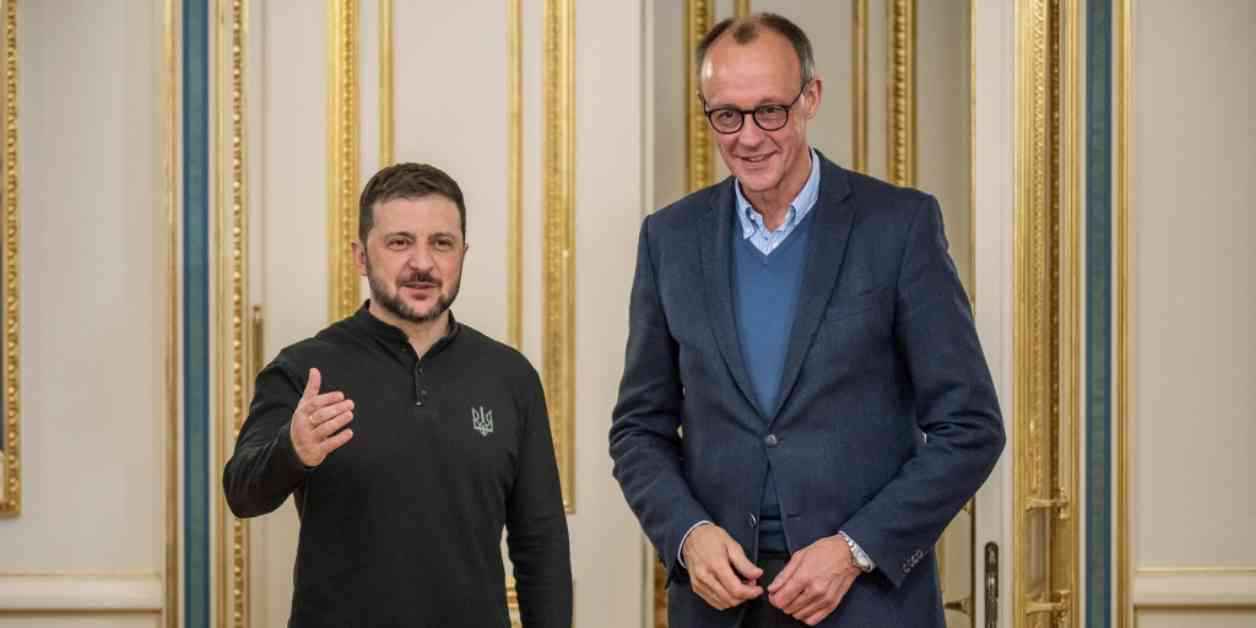A Rift in Alliances: Europe’s Emergent Leadership Amid U.S. Tensions
London — The recent Oval Office showdown between Presidents Donald Trump and Volodymyr Zelenskyy has not only strained diplomatic relations between Washington and Europe but also raised questions about the future of the transatlantic alliance. Even before this unprecedented clash, tensions were escalating, leading to European leaders rallying behind Zelenskyy in a show of solidarity against Trump’s controversial remarks.
Support for Zelenskyy, who has been defending Ukraine against Russia’s invasion, poured in from European leaders, with Ursula von der Leyen, president of the European Union, commending Zelenskyy’s courage and resilience. Friedrich Merz, the potential next leader of Germany, emphasized the importance of distinguishing between aggressors and victims in the conflict. French President Emmanuel Macron reiterated the necessity of supporting Ukraine’s fight for independence and security.
Despite varying opinions on the matter, European leaders have expressed a unified stance in defending Ukraine against Russian aggression. They see this conflict as part of a broader hybrid war encompassing cyberattacks and threats to Western democracy. Moreover, many European powers have signaled their readiness to reduce dependence on the U.S., a long-standing partner in the transatlantic alliance.
Europe’s Quest for Independence
Following Germany’s recent elections, Merz’s call for strengthening Europe’s autonomy and reducing reliance on the U.S. has gained momentum, signaling a shift in the traditional power dynamics. The prospect of establishing an independent European defense capability has sparked debates on the future of NATO and the role of American forces in Europe.
While some leaders advocate for increased military spending and self-reliance, questions remain about the practical implications of such a transition. The intricate web of U.S. military presence in Europe poses significant challenges, requiring substantial financial investments and strategic planning to ensure a seamless transition to European defense autonomy.
According to experts, achieving full deterrence against Russia without U.S. support could take several years and substantial resources. The significant disparity in defense budgets between the U.S. and Europe underscores the scale of the task ahead and the need for urgent action to bridge the gap.
Europe’s Path Forward
As European leaders navigate this new era of transatlantic relations, the focus remains on forging a unified front to address security challenges and assert greater independence from the U.S. Macron’s vision of a historic Franco-German agreement underscores the potential for enhanced European cooperation and coordination in defense matters.
Experts suggest the formation of a European “war cabinet” comprising key leaders from various European nations and organizations to drive forward this vision of autonomy and strategic self-sufficiency. The need for agility and swift action is paramount, especially in the face of ongoing negotiations between the U.S. and Russia on critical geopolitical issues.
In conclusion, Europe’s evolving role in global security dynamics reflects a broader shift towards greater self-reliance and strategic autonomy. The recent developments highlight the growing importance of European leadership in navigating complex geopolitical challenges and reshaping transatlantic relations in an increasingly uncertain world. As European leaders chart a new course towards independence, the path ahead is fraught with challenges and opportunities, requiring collective action and unwavering determination to safeguard Europe’s security and prosperity.


